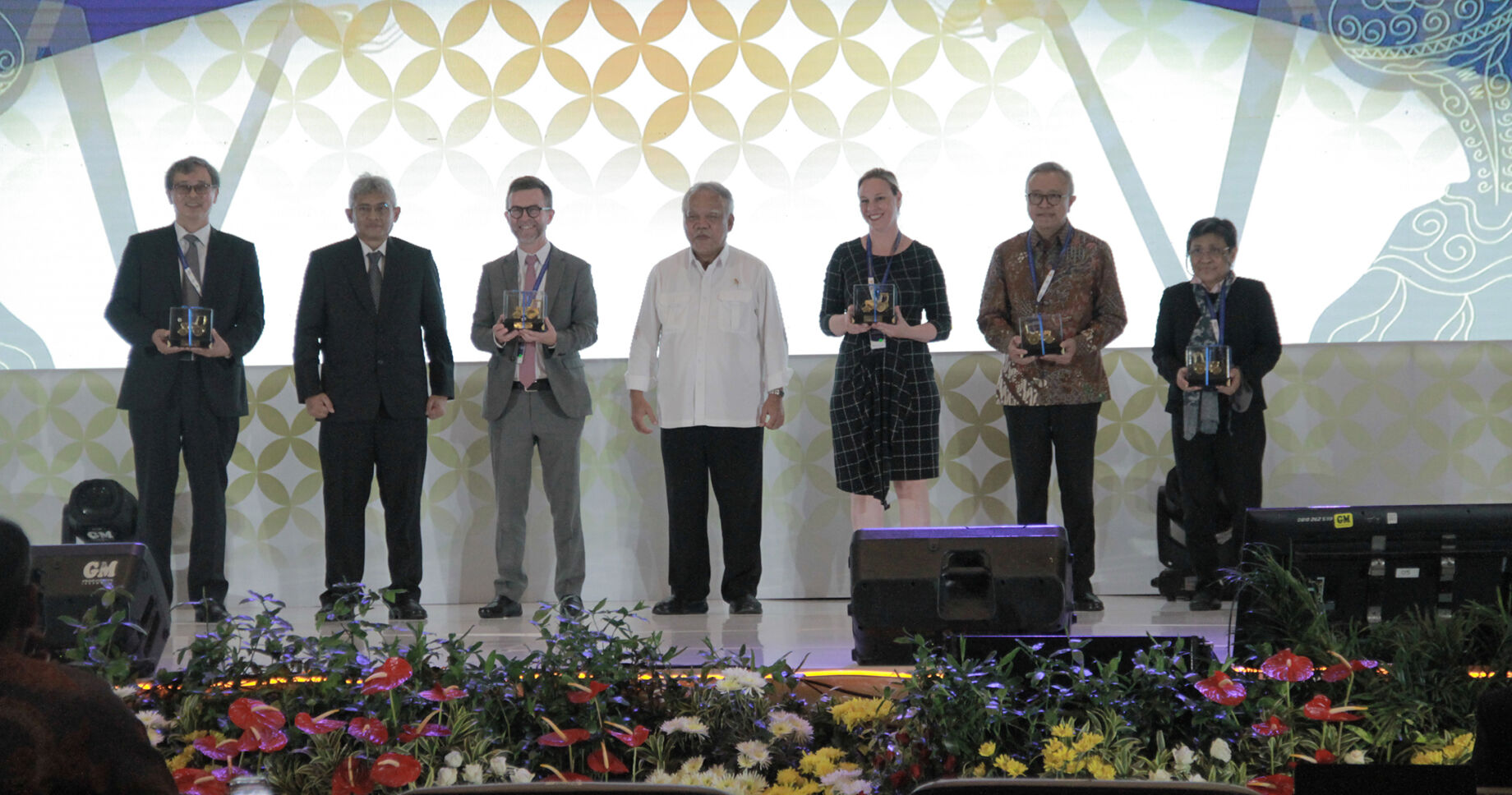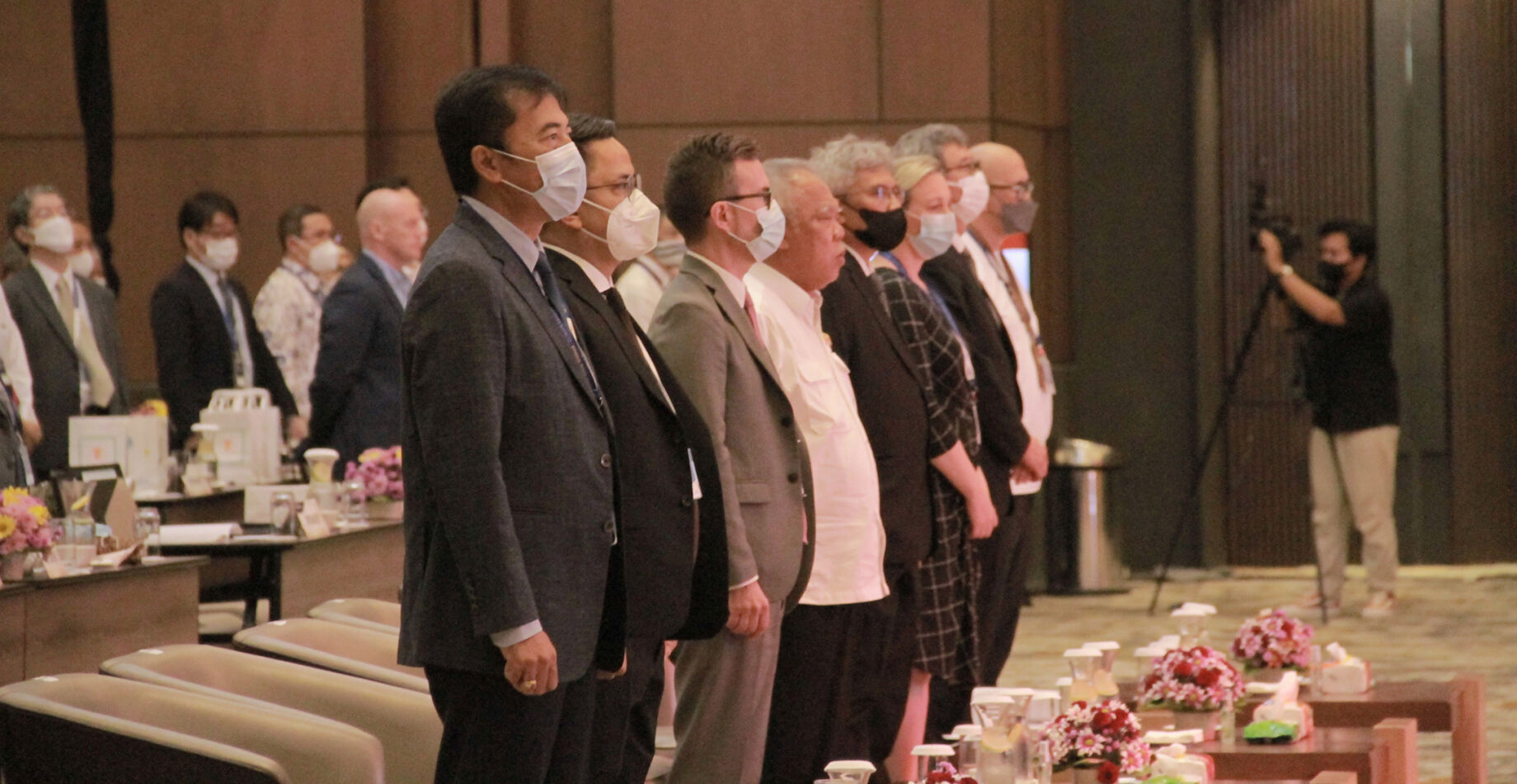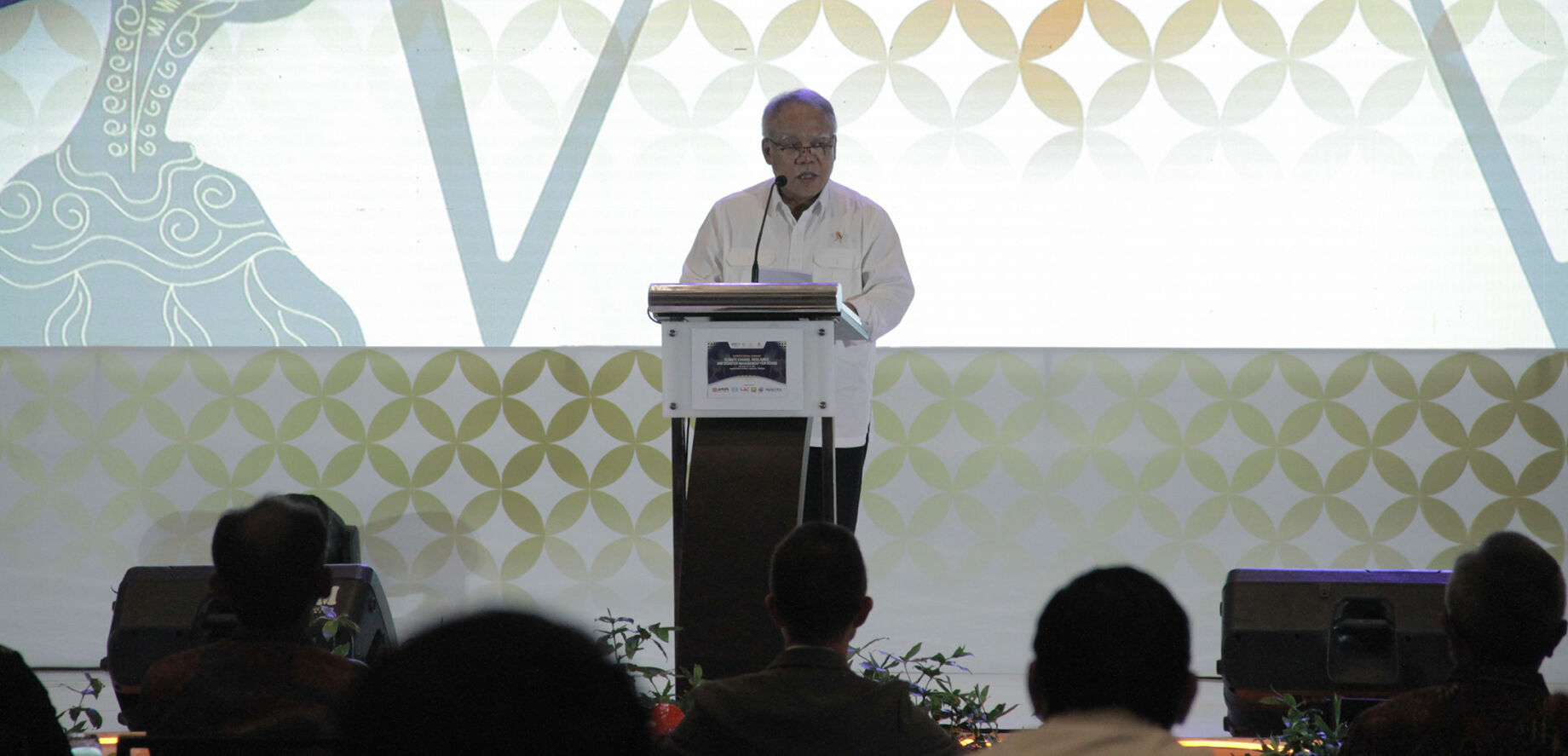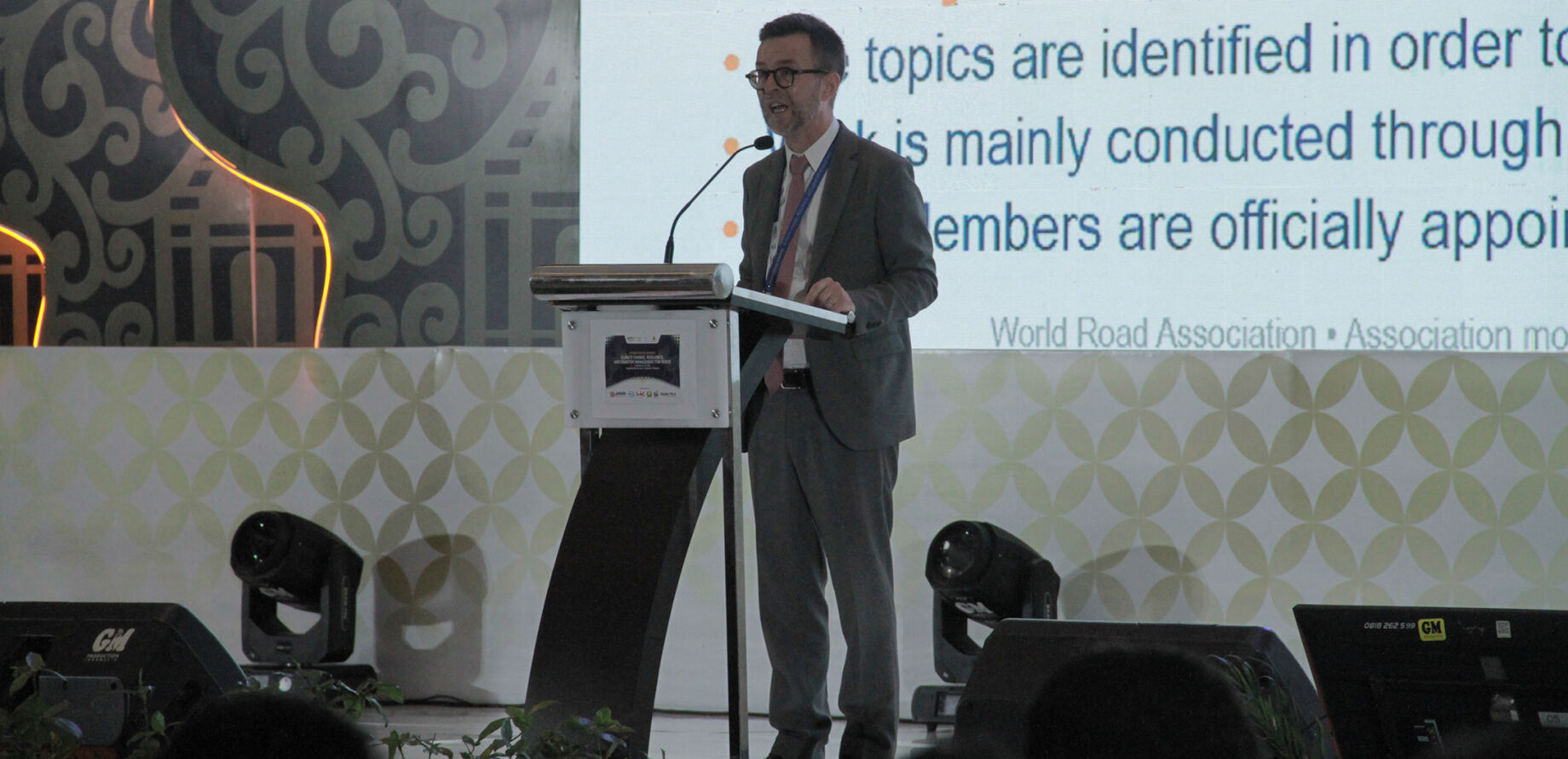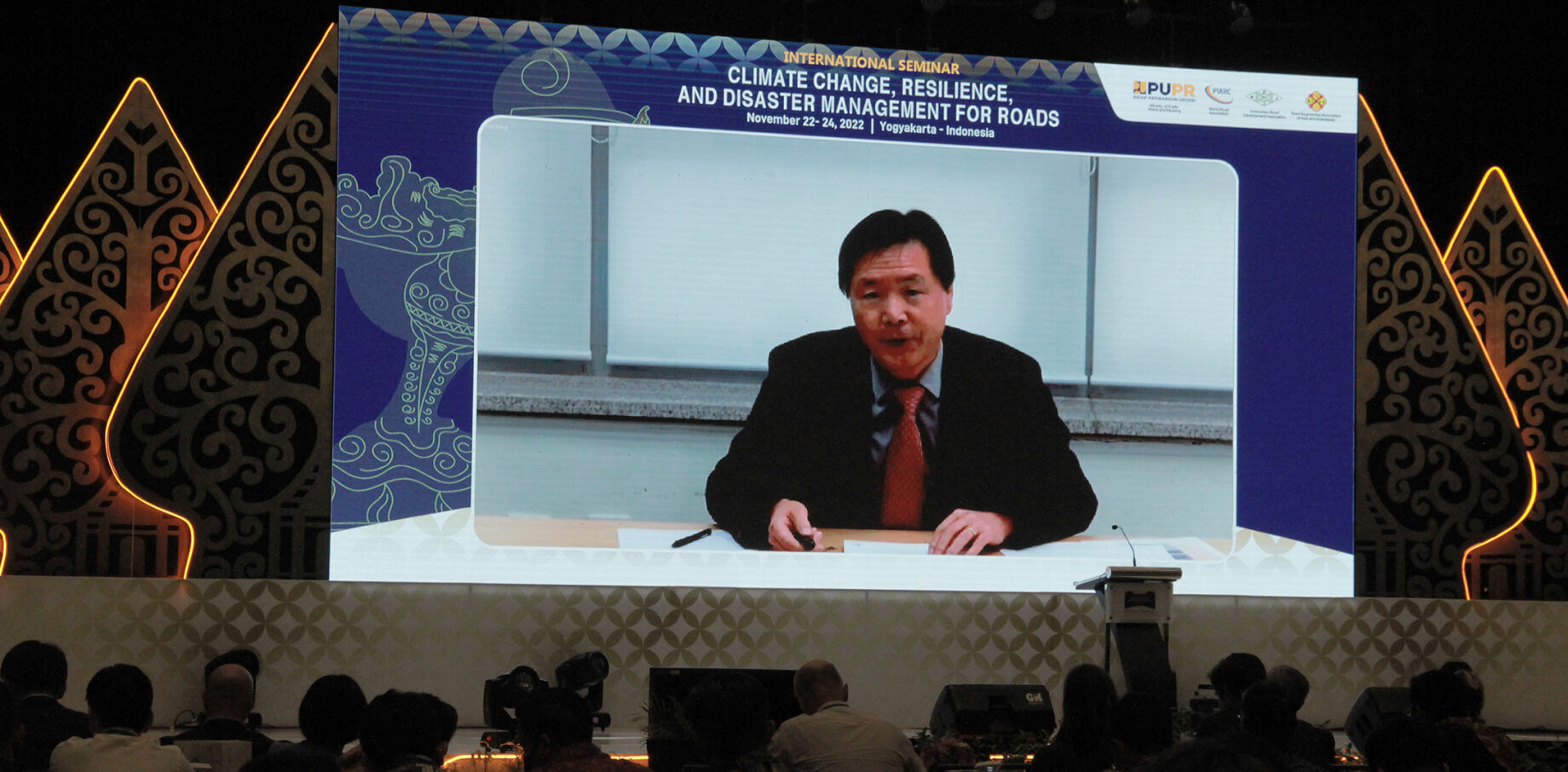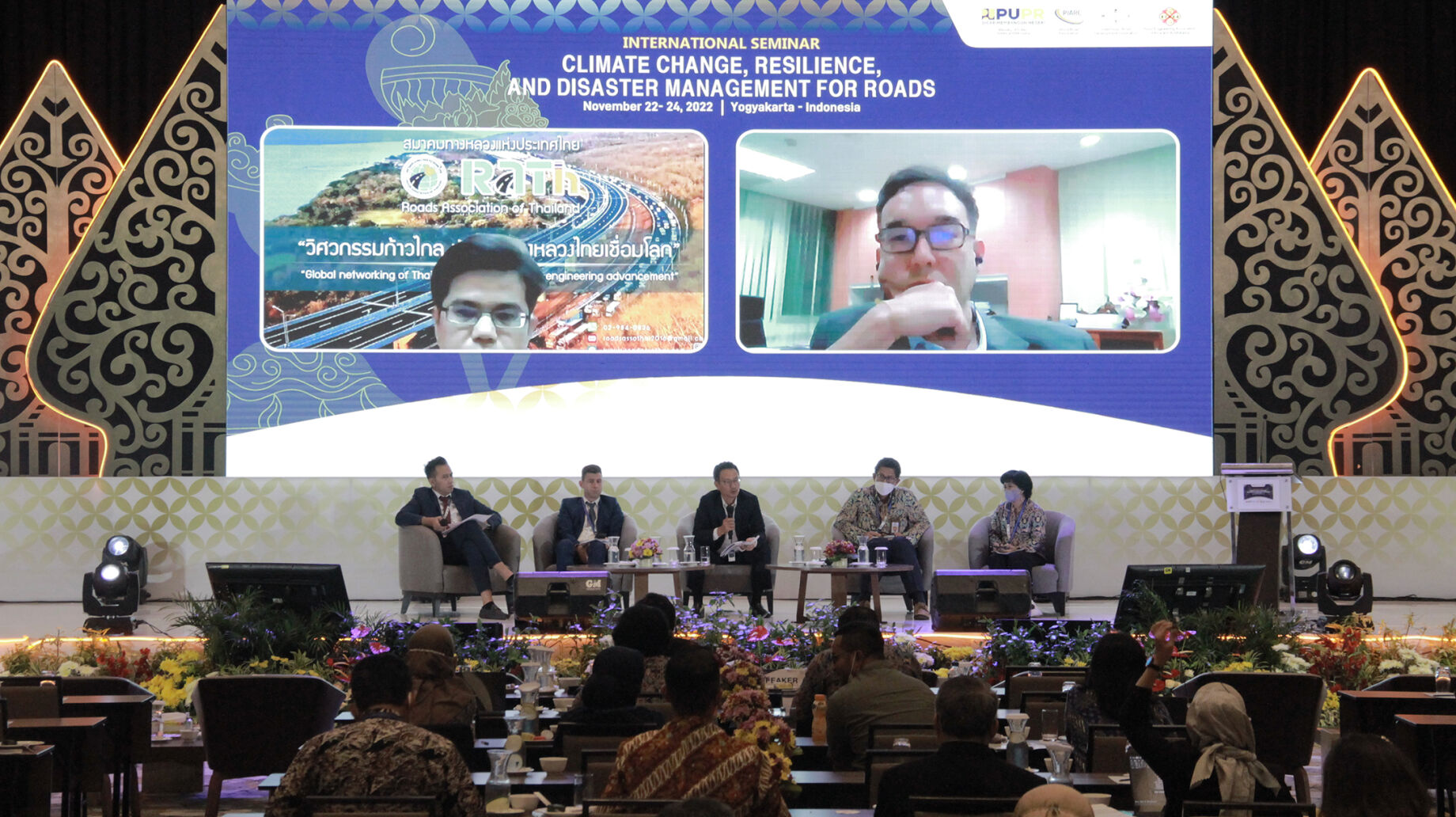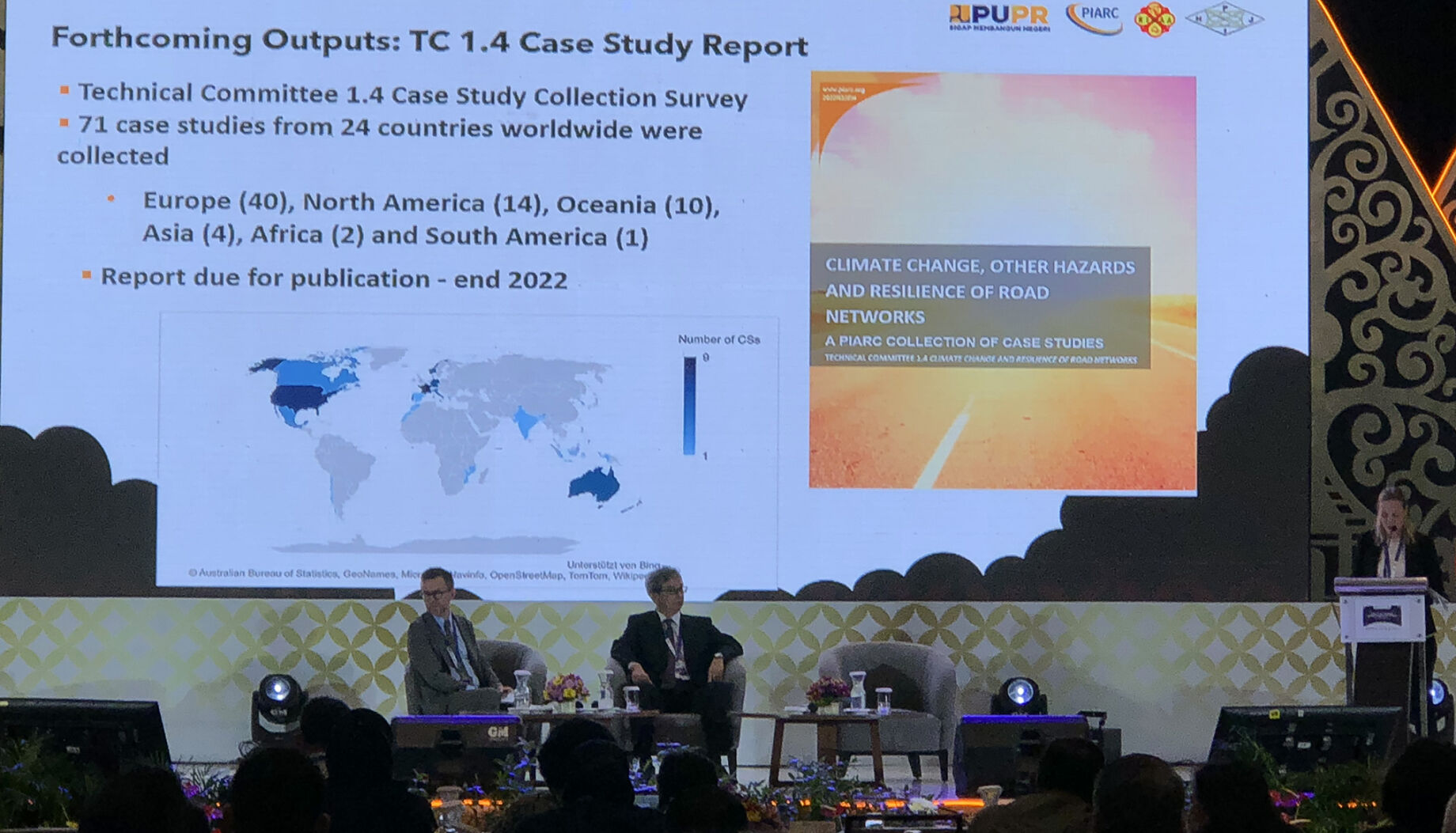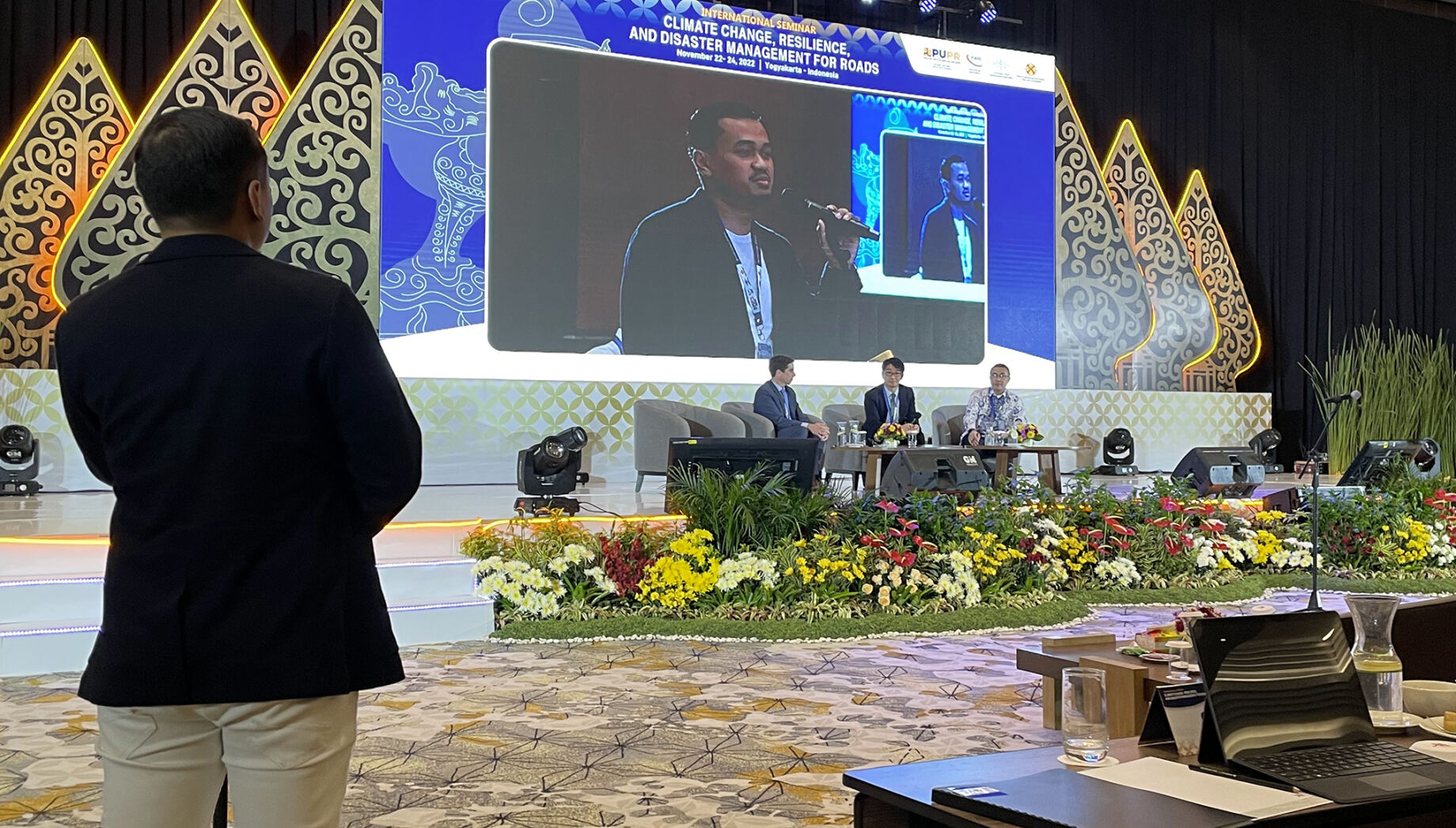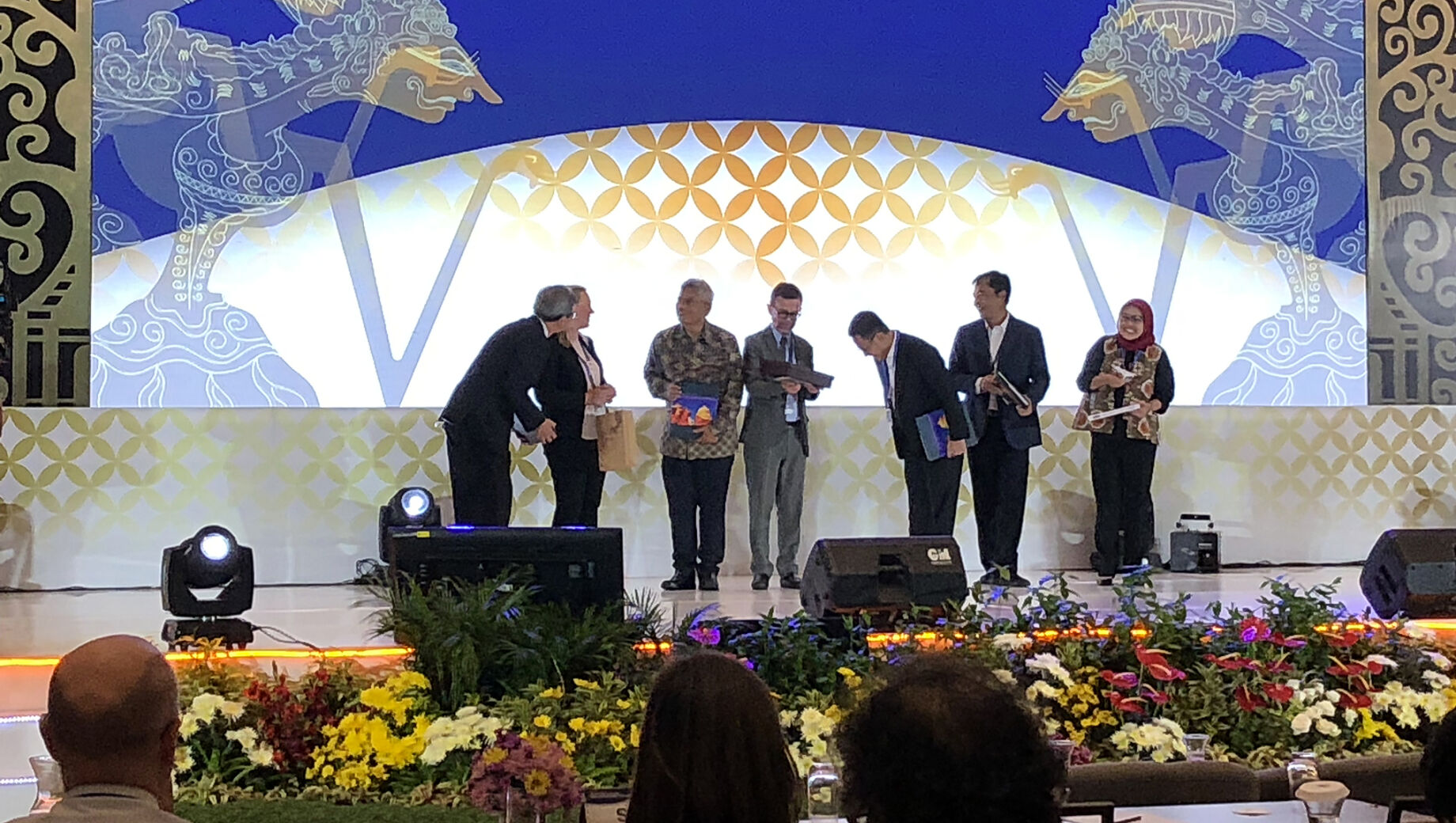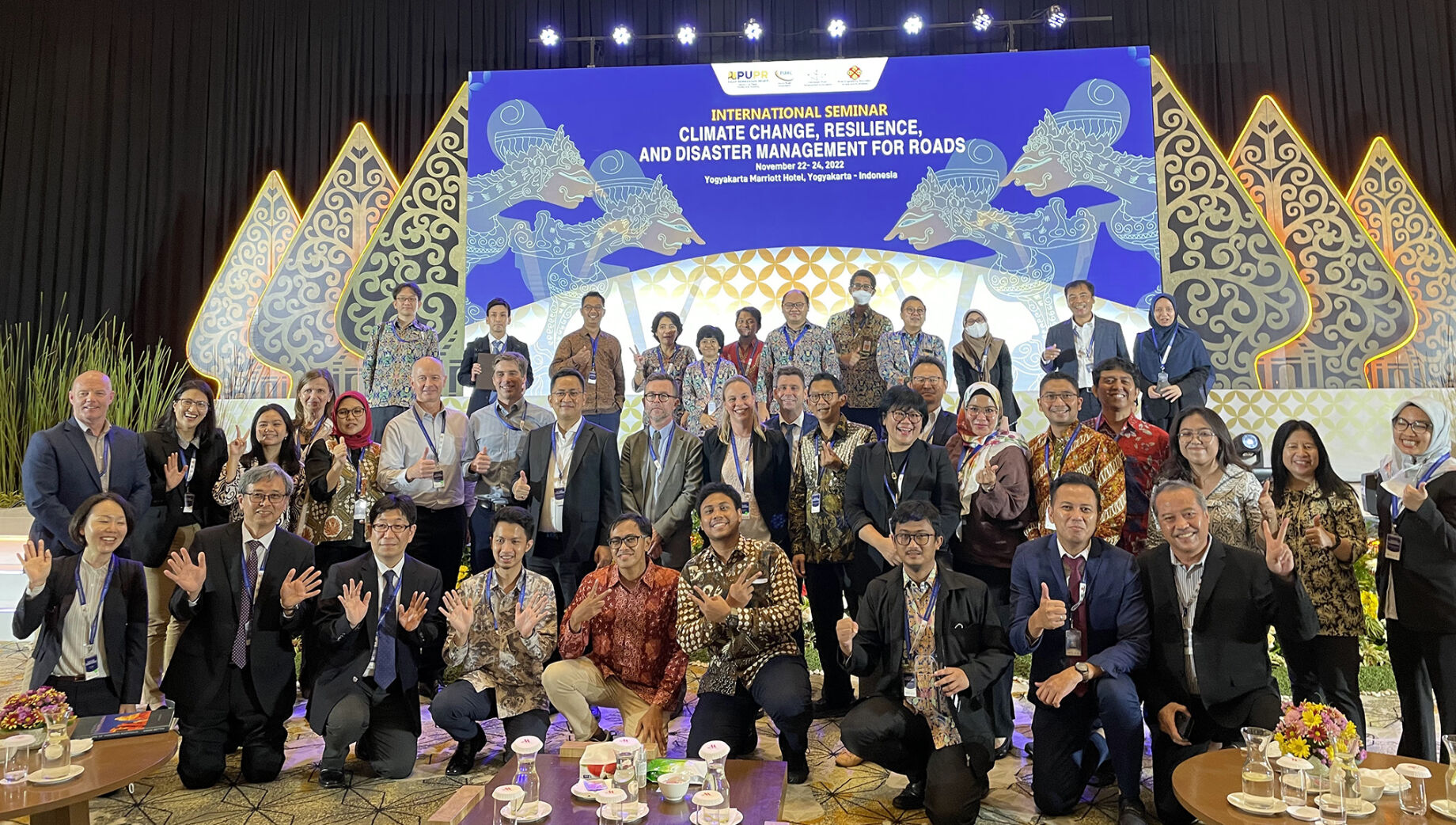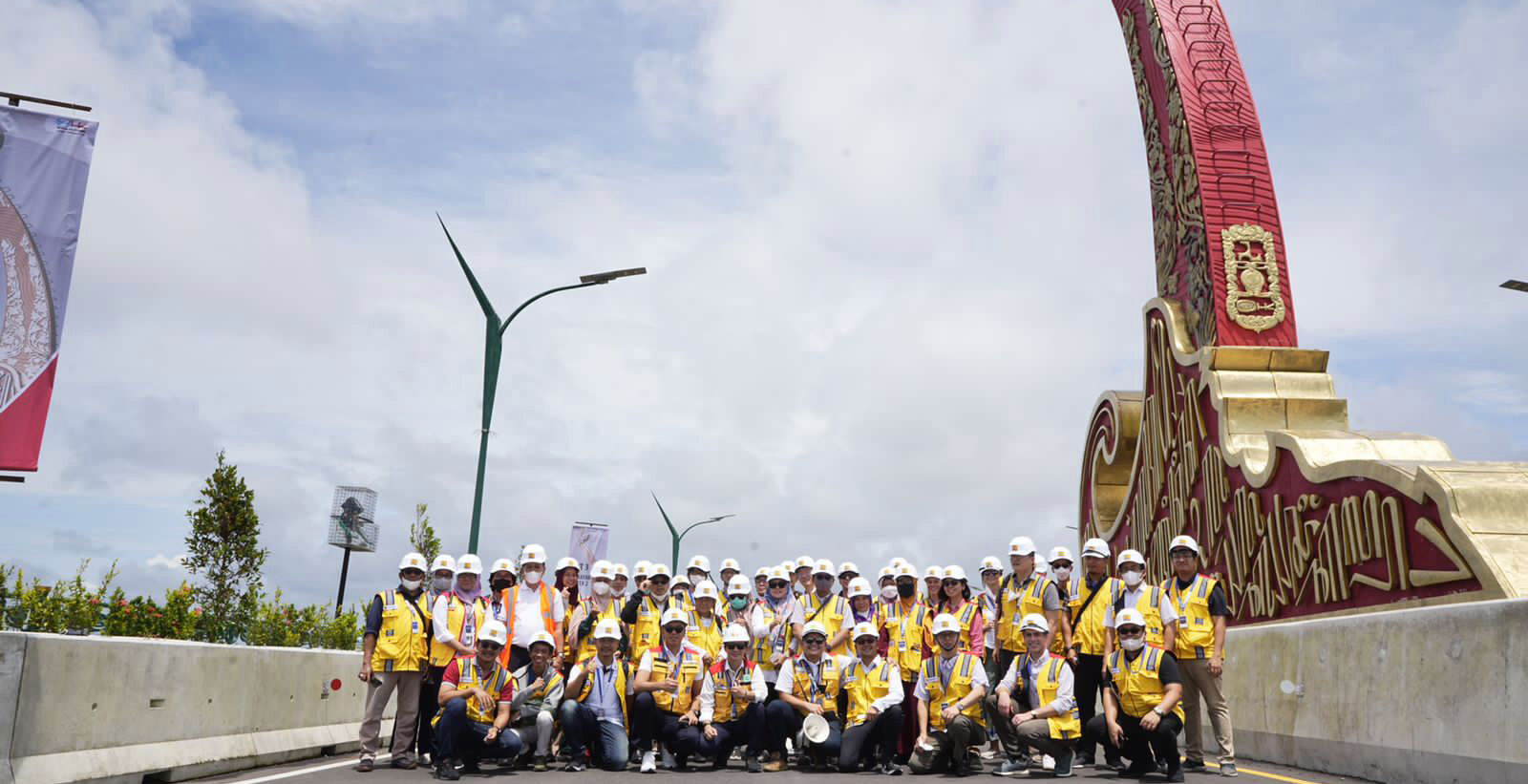International Seminar "Climate Change, Resilience and Disaster Management for Roads"
22-24 November 2022, Yogyakarta (Indonesia) and online
The international seminar was jointly organized by the Regional Association of Asia and Australasia (REAAA), the Indonesian Road Development Association (HPJI), the Ministry of Public Works and Housing (PWH) and PIARC Technical Committees 1.4 "Climate Change and Resilience of Road Networks" and 1.5 "Disaster Management". This seminar was organized to share expertise and make relevant recommendations so that effective solutions and countermeasures can be proposed, taking into account the specific characteristics of each city: financial, logistical, existing networks, policies currently in place, and so on.
Preparatory documents for the Seminar
Objectives of the Seminar
Climate change and other hazards have a wide range of impacts on the performance of road infrastructure and can cause disruptions to the operation of the road network. For example, extreme rainfall will affect the intensity beyond the drainage capacity of roads, resulting in slope failures, landslides and traffic disruption. The traffic disruption will lead to an increase in traffic accidents and restrictions. Disasters are also associated with significant loss of life and significant material and immaterial damage every year around the world.
In Indonesia, hundreds of kilometres of road and bridge infrastructure have been damaged over the past 20 years. The increasing incidence of traffic disruptions and the severely damaged road and bridge infrastructure are hampering economic activity and causing further accidents. The development of consistent and holistic methodologies and adaptation frameworks to prevent and manage climate change and other hazards plays an important role in making road infrastructure more resilient (explored by PIARC Technical Committee 1.4: Climate, Change and Road Network Resilience). Disaster mitigation is needed to reduce the impact of disasters on people and property, in particular on road infrastructure (the subject of PIARC Technical Committee 1.5: Disaster Management).
With this in mind, this seminar was organized with the aim of sharing experiences and relevant appropriate recommendations for effective solutions and countermeasures, taking into account the specific characteristics of each city: financial, logistical, existing networks, policies currently in place, and so on. The seminar also aimed to provide an overview of the challenges associated with managing climate impacts and road resilience by presenting approaches and case studies from different countries.
Summary of sessions
The hybrid seminar was divided into four sessions:
(1) Adaptation to climate change risks and disaster management
The first session focused on adaptation to climate change risks and disaster management. Most assessments of losses from natural disasters focus on damage to assets, including buildings, infrastructure, equipment and production. Recent case studies show that ignoring risks results in significant social, economic and financial losses. Therefore, a comprehensive measurement of this risk is needed to avoid further societal losses. The session included a number of presentations highlighting the implementation of the Build Back Better (BBB) concept.
(2) Building capacity for adaptation and resilience (economic, social and environmental)
The second session focused on adaptation to climate change risks and disaster management. There are challenges in the planning and implementation of post-event recovery efforts, where inadequate planning has resulted in more adverse impacts on affected communities than would have occurred with proper planning, coordination and collaboration, and timely provision/disbursement of resources (budgets). The process of prioritisation requires significant input from both road authorities and communities. Prioritisation of interventions is essential to ensure the best use of limited resources and to avoid waste. Monitoring and evaluation of the effectiveness of adaptation measures was explored, such as: a robust institutional R&D capacity is essential for continuous refinement and improvement of interventions. The session included numerous presentations highlighting activities related to capacity building for disaster and climate change resilience.
(3) Best practices on climate change resilience and disaster management.
The third session focused on best practices in climate change resilience and disaster management. Indonesia is one of the ten countries most affected by natural disasters in the period 2005-2014. Earthquakes and tsunamis have caused significant damage and loss of life. Network resilience and disaster management practices are needed, including strengthening disaster management capacity, improving disaster facilities and infrastructure, managing emergencies and post-disaster recovery, and strengthening disaster management. The session included a number of presentations highlighting experiences in improving resilience to disasters and climate change.
(4) Activity reports
This session provided an overview of the activities currently taking place within PIARC Technical Committee 1.4 Climate Change and Resilience of Road Networks, Technical Committee 1.5 Disaster Management and within Strategic Theme 1: Road Administration. Key activities included the development of consistent and holistic methodological approaches to climate change and other hazards, and the development of an updated version of the PIARC International Climate Change Adaptation Framework for Road Infrastructure. Collaboration with other infrastructure networks, including REAAA, was also noted. In addition, this session highlighted the activities of PIARC Technical Committee 1.5 in relation to the development of the Disaster Management Handbook, information and communication in disaster management, and research into the financial aspects of disaster management.
Course of the seminar
There were over 300 participants in person and about 100 participants connected online for this hybrid event.
| International Seminar Proceedings - 22-24 November 2022 Climate Change, Resilience and Disaster Management for Roads |
|---|
Day 1 - 22 November
09:00 - 09:30 | Opening session | |
| ||
09:40 - 10:20 | Technical session 1 - Adaptation to climate change risks and disaster management (1A)
| |
10:40 - 11:20 | Technical session 1 - Adaptation to climate change risks and disaster management (1B)
| |
11:20 - 12:00 | Keynote session 1
| |
13:00 - 14:20 | Technical session 1 - Adaptation to climate change risks and disaster management (1B)
| |
14:14 - 16:00 | Technical session 2 - Building capacity for adaptation and resilience (economic, social and environmental) (1)
| |
16:00 - 17:00 | Roundtable 1 - Priorities for enhancing climate change resilience and disaster management
| |
Day 2 - 23 November
09:00 - 09:40 | PIARC Activity Report - Resilience and Disaster Management for Roads
| |
09:40 - 10:20 | Keynote session 2
| |
10:40 - 12:00 | Technical session 2 - Building capacity for adaptation and resilience (economic, social and environmental) (2)
| |
13:00 - 14:20 | Technical session 3 - Best practices in climate change resilience and disaster management (1)
| |
14:40-16:00 | Technical session 3 - Good practices in climate change resilience and disaster management (2)
| |
16:00-17:00 | Roundtable session 2 - Identifying the benefits of network resilience and disaster management practices and applications
| |
16:50-17:00 | Closing session
| |
Conclusions of the Seminar
The seminar provided an opportunity to share methodologies, approaches and practical applications within Indonesia and internationally, and to enhance opportunities for collaboration between PIARC, REAAA and the Indonesian road community. Some key conclusions are presented below.
Conclusions for policy makers
There is a growing global desire to be proactive rather than reactive to climate change events.
Vulnerability varies within and between countries, so it is important to prepare for resilience by involving all stakeholders - transport authorities, experts, contractors, transport users and local communities.
Data collection is becoming more extensive and analysis more complex - geospatial mapping is becoming standard practice
There are many approaches to strengthening existing infrastructure, implementing maintenance plans, improving contingency plans and considering retreat as an option when necessary.
Technical conclusions
There are a number of technologies that should be further explored to improve the resilience of infrastructure, and structural and operational resilience remain key.
The PIARC Climate Change Adaptation Framework for Road Infrastructure (published in 2015 and currently being updated) aims to guide road authorities through the process of increasing the resilience of their networks and assets. It is designed to be applicable at any scale, including national, regional, local and asset-specific levels. This framework is currently being updated and the importance of these guidelines for low and middle income countries was further confirmed at this seminar.
The PIARC Disaster Management Manual provides advice on effective and efficient disaster management policies and practices. The manual presents basic concepts and case studies of lessons learned and experiences in applying these basic concepts in practice. These ideas and examples are categorised and provided for each stage of the disaster management cycle.
Conclusions for PIARC and other road organisations
Cross-border activities are essential, especially when dealing with unforeseen events. It is necessary to give engineers involved in disaster management the opportunity to create a community that encourages the exchange of information. Of course, it is most important that such seminars are held in person. However, we were able to take advantage of the hybrid format and a large number of participants from around the world were involved. While the face-to-face format is the basic format, the hybrid format allows many countries to benefit from the outcomes of the seminar.
The seminar was characterised by cross-border exchange of knowledge and experience from all over the world. A notable aspect of the seminar was the participation of REAAA technicians in the presentations and discussions. In particular, the seminar brought together local authorities, administrators, the private sector and those responsible for road traffic and safety, design engineers, design consultants, road network managers, contractors, academics, researchers and engineering students.
The wide range of participants enriched the discussions and increased the activity of this event. It was reaffirmed that it is important for the various road-related associations to work together to promote the exchange of information.
